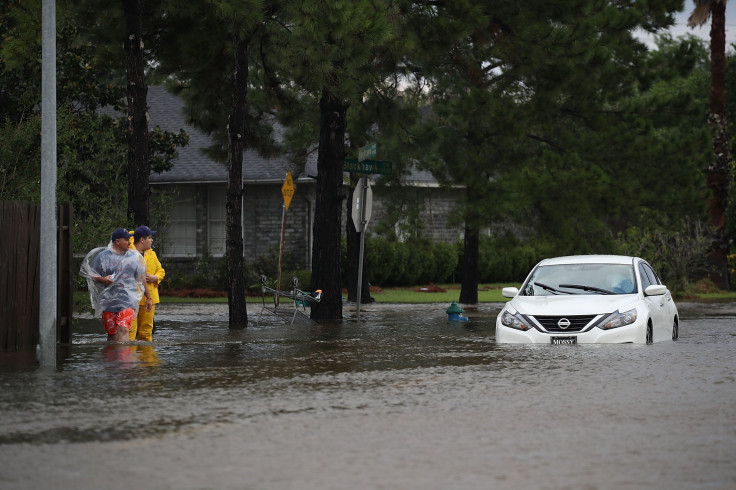Severe Weather Events Have A Limited Effect On Support For Climate Policies

Going through a severe weather event, like a storm, drought or flood, might change a person’s attitude towards climate change policies, but the support would be small, a new study finds.
New research suggests a person who recently went through a severe weather event would more likely support policies that would address the effects of climate change. However, that support would diminish quickly, and with no effect a month after being exposed to an extreme weather episode.
The study comes as strong storms and wildfires affect Americans. There are currently 76 wildfires burning across nine states, with smoke visible from space. The fires have forced people in the area to flee their homes. Experts are concerned that climate change will increase the length of future fire seasons. It also comes after Hurricane Harvey destroyed Texas and as Hurricane Irma makes its way towards Florida.
Experts say warming temperatures will increase the number of extreme weather events and their severity, with the global mean sea level continuing to rise during the 21st century, according to the Intergovernmental Panel on Climate Change.
However, the increase in severe weather doesn’t necessarily mean people will rush to embrace climate policies as we’d hope.
"People respond to recent weather, whether it's temperature spikes, severe storms or other events," David Konisky, an associate professor in the School of Public and Environmental Affairs at Indiana University who worked on the study, said in a statement. "But the effects are small. Extreme weather is much less significant than other factors when it comes to attitudes about climate."
The study finds experiences with severe weather stands small against other factors, like a person’s political opinion and party affiliation. Among political lines, 86 percent of liberals said they saw climate change as a major threat, compared to 31 percent of conservatives, a survey this year found.
"People are pretty certain of where they stand on climate change, and extreme weather does not really move the needle much," said Konisky.
For the study, researchers took data from the Cooperative Congressional Election Study and the National Weather Service's Storm Events Database. Experts focused on three climate adaptation policies: restrictions on coastal development, limits on outdoor residential water use and regulation of stormwater runoff from residential property.
The three policies had considerable support, but researchers found those who were exposed to an extreme weather event expressed only “modestly stronger” support than respondents who did not experience severe weather events.
The researchers wrote:
“The analysis showed a positive association with experiences of recent extreme weather events and support for coastal development limits, including when we restricted the geographic boundaries of respondents to areas most likely to benefit directly from such policies. There is also evidence of more support for water use restrictions among those experiencing more frequent severe weather, although not especially for those living in affected areas, but no relationship emerged in the case of residential stormwater controls. Across all of these findings, it is important to emphasize that the size of the effect of experiencing extreme weather and preferences toward adaptation policies is modest.”
Researchers pointed out that people might have been a bit more in favor of coastal flooding and climate adaptation because of high media coverage of the destruction of events like Hurricane Irene and Hurricane Sandy, compared to stormwater-related regulations, which may be seen as ordinary.
“Another possibility is that the finding can be attributed to the potential for the benefits of the policies to be captured locally,” researchers wrote.
A separate study released last month suggested economic, social or cultural influences could play a part in why people don’t want to accept climate change, since those who tend to deny climate change depend on certain industries for jobs. For example, a town in Louisiana might suffer from coastal erosion propelled by climate change, but they’re also heavily dependent on the oil industry. Since some communities are so dependent on oil and gas industries, it could play a part on why locals don’t embrace the idea of climate change, since strong environmental regulations could disturb the companies, which could affect jobs in the area.
The recent study, "Extreme weather exposure and support for climate change adaptation," was published in the journal Global Environmental Change.
© Copyright IBTimes 2024. All rights reserved.











